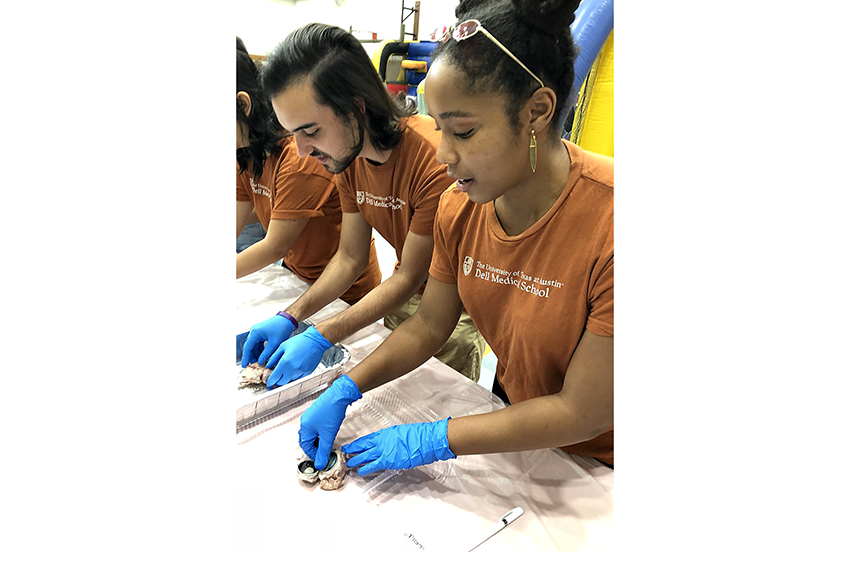The Health Leadership Apprentice program at Dell Medical School aims to connect students with faculty and resources at the medical school to work on projects that will transform health care.
The program is open to undergraduate and graduate students at UT and Huston-Tillotson University and is currently seeking applicants for their summer 2019 session.
The program was created to give students interested in health care an opportunity to work with the people at Dell Med, program director Steve Steffensen said.
“Traditionally, the way people get access to rotations with a physician or into a research lab is through friend or family connections,” Steffensen said. “We want to level that playing field to allow a more diverse population to come in and help inform us on what needs to be done from a health innovation perspective.”
The program has a variety of components including a lecture series, faculty research opportunities and student-led projects.
One unique aspect of the program is the ‘house project,’ which is a team-based project aiming to improve health in the local community, Steffensen said.
When students enter the program, they are assigned to one of six houses, in which they will work with five or six members of their class. Steffensen said there is a large effort to diversify the backgrounds of the people within each house.
“You might have a computer science student, a nursing student and a music student in one house,” Steffensen said. “The idea is to leverage the collective talents in each house toward the accomplishment or realization of some need in the community.”
Chemistry junior Kavya Rajesh worked with her house on a project that focused on mental health first-aid training.
“We wanted to implement mental health first-aid training programs for public school teachers,” Rajesh said. “We have first-aid kits for physical wounds, but there are actually big programs for mental health first aid that train people to intervene in everyday mental health scenarios.”
Rajesh said the most valuable aspect of her experience in the program was learning about the visions of her fellow classmates.
“At the end of the day, this program is a bunch of unpaid undergraduate volunteers working under a physician and really interesting things have come out of it,” Rajesh said. “The passion people have for what they believe in is really inspiring.”
Students in the program can also apply for opportunities to work with faculty on projects.
During her time in the program, neuroscience junior Deepanjili Donthula participated in a marketing internship at the Texas Health CoLab, a Dell Med initiative to support innovation in health care. She said this opportunity gave her a chance to explore an area she had no experience in.
“Up until then, I’d never done anything related to the business side of health care,” Donthula said.
Alongside the efforts of the faculty at Dell Med, Steffensen said the true success of the program falls into the hands of the students who participate in the program and the student coordinators who help manage it.
“One thing that has been really characteristic about the program is evolving it to meet the needs and recommendations of the students,” Steffensen said. “Their input has helped shaped the program into what it is today.”



